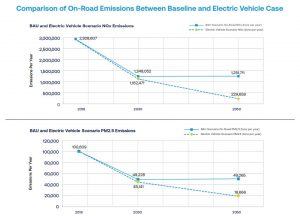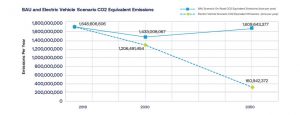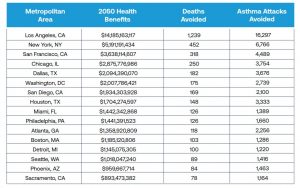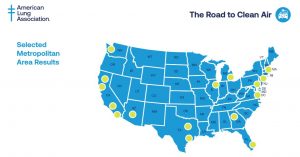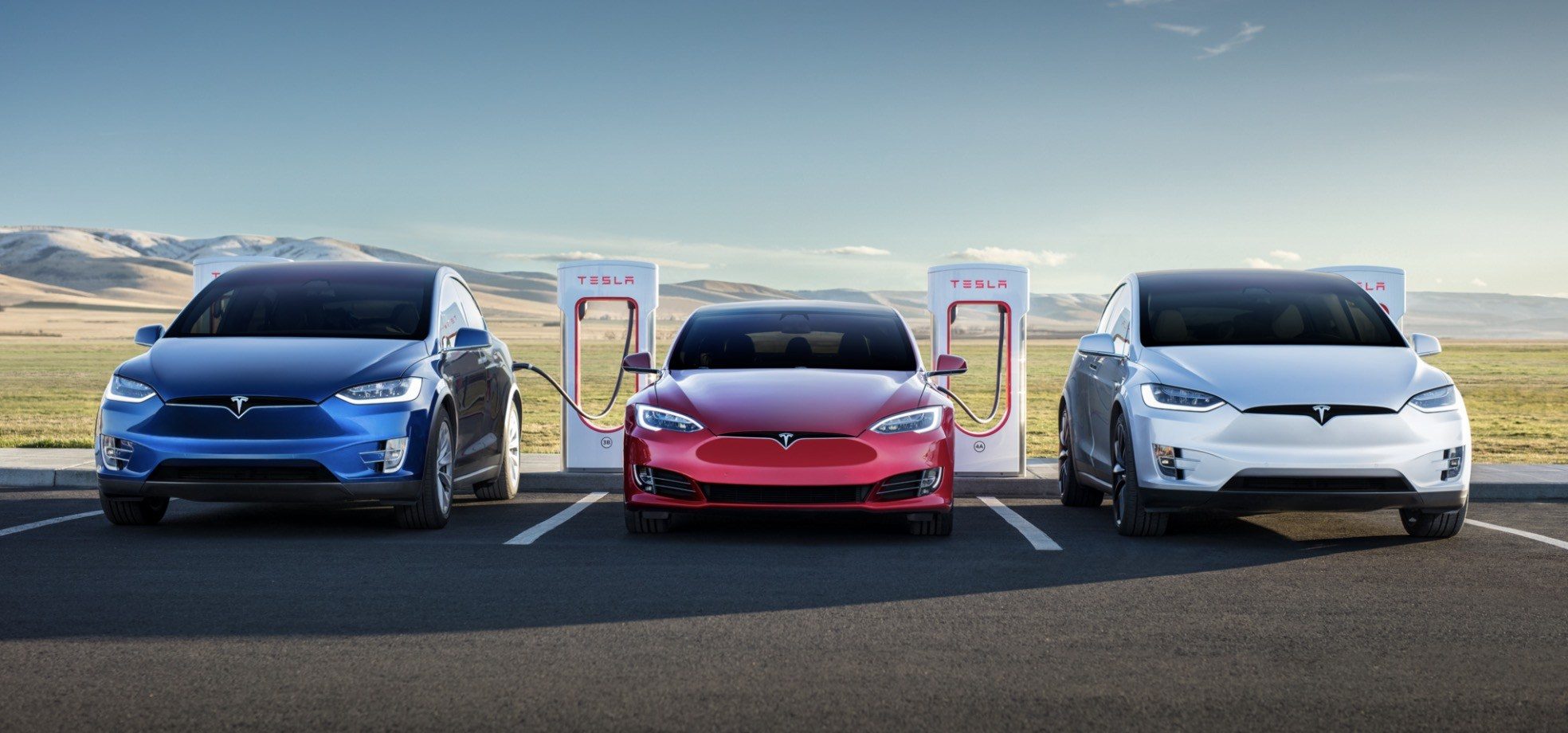

Energy
EVs like Teslas will save lives and billions in health costs in 2050: ALA report
The American Lung Association recently published a report advocating for a nationwide transition to electric vehicle (EV) transportation. Specifically highlighting public health, air quality, and climate change benefits that will be brought about by the widespread use of electric cars, the organization estimates over 6,000 saved lives, $70 billion dollars in health cost savings, and $113 billion dollars in climate-driven savings in 2050 if zero emissions from vehicles are achieved by that year.
“The widespread transition to zero-emission transportation technologies could produce emission reductions in 2050 that could add up to $72 billion in avoided health harms, saving approximately 6,300 lives and avoiding more than 93,000 asthma attacks and 416,000 lost workdays annually due to significant reductions in transportation-related pollution avoiding more than 93,000 asthma attacks and 416,000 lost workdays annually due to significant reductions in transportation-related pollution,” the report summarizes.
“[T]he benefits to our environment in the form of avoided climate change impacts, as expressed as the Social Cost of Carbon, could surpass $113 billion in 2050 as the transportation systems combust far less fuel and our power system comes to rely on cleaner, non-combustion renewable energy. This value reflects a range of negative consequences to health, agricultural productivity, flood risk and other adverse impacts generated by carbon emissions in the form of global climate change.”
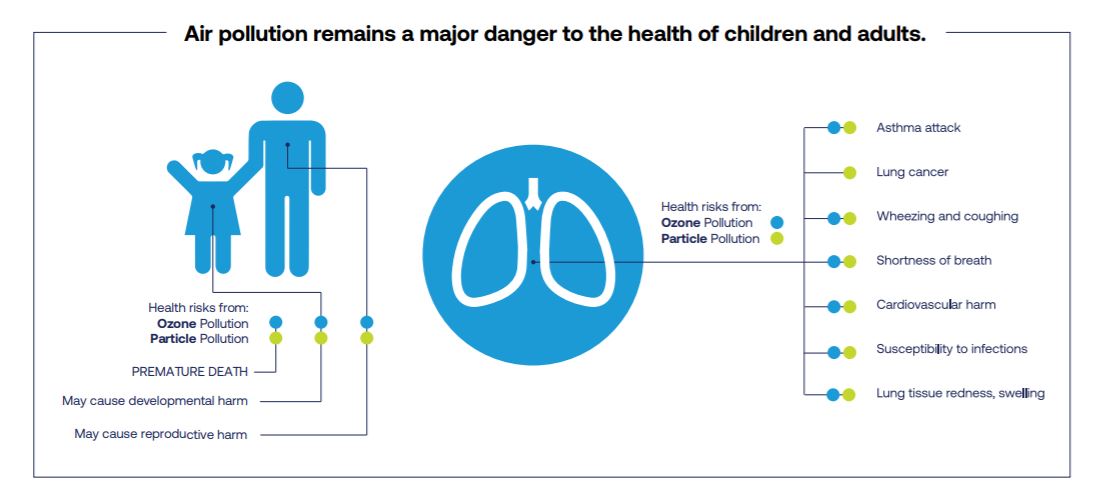

In “The Road to Clean Air,” the American Lung Association (ALA) provides a number of comparisons of reduced emissions against the current environment, i.e., Business as Usual. All states in the US were shown to benefit significantly in terms of health and economic productivity, but specific metro areas were highlighted given traffic congestion and pedestrian proximity to vehicle emissions. “Eighteen states show annual benefits reaching $1 billion or more in 2050 while even the smallest states see benefits in the tens to hundreds of millions,” the report detailed.
“The transition to zero-emission transportation will benefit the health of children riding school buses, daily commuters and transit riders, truckers and local delivery drivers and especially those residents nearest major roadways, warehouse distribution centers and other pollution hotspots,” the report added.
- (Image: The American Lung Association)
- (Image: The American Lung Association)
- (Image: The American Lung Association)
- (Image: The American Lung Association)
Along with detailing the benefits of a zero-emissions transportation sector in the US, the ALA also proposed a few action recommendations in their report. Key among them were establishing policies at the federal and local levels which prioritize zero-emission transportation (extending incentive programs, increasing grant funding for bus/truck purchases) and investing in infrastructure changes that provide for charging networks in all areas where they’d be necessary for widespread adoption (parking garages, workplaces, multi-unit housing). On an individual level, the ALA recommended changing energy providers to those with clean-energy sources and test driving (ultimately buying if in the market) electric cars to familiarize oneself with their features and benefits.
The long-term societal benefits that EVs like Teslas may offer are well-known by their most enthusiastic proponents, and this recent ALA report is yet another confirmation of the data that drives their advocacy. Tesla CEO Elon Musk, with both his fans and fans of the company’s vehicles following suit, are counted as some of the most vocal and action-oriented about these potentials. Since Musk’s first Master Plan was published in 2006, Tesla has been pushing to achieve the zero-emissions transportation future laid out by the American Lung Association’s recent report. The Boring Company’s tunneling with all-electric vehicles providing the passenger ferrying will also play a part in this plan, even if not originally included. Finally, with Tesla’s renewed focus on expanding the solar energy side of the business, Musk and company hope to tackle the climate change impacts on both US and international health as well.
Read the ALA’s electric vehicle report below.
ALA – Electric Vehicle Report by Simon Alvarez on Scribd
Energy
Tesla Lathrop Megafactory celebrates massive Megapack battery milestone
The Tesla Megapack is the backbone of Tesla Energy’s battery deployments.
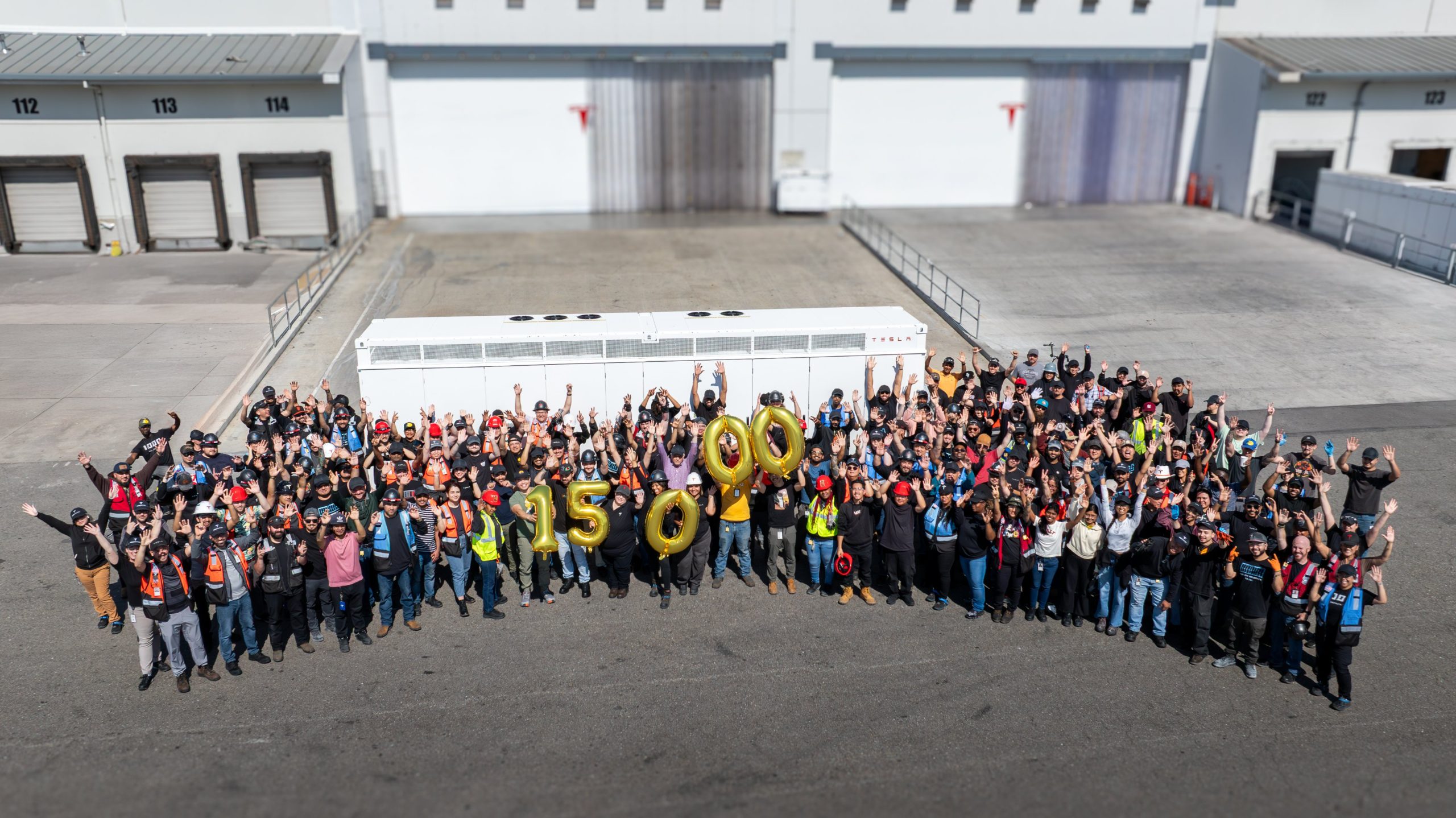
The Tesla Lathrop Megafactory recently achieved a new milestone. As per the official Tesla Megapack account on X, the Lathrop Megafactory has produced its 15,000th Megapack 2 XL battery.
15,000 Megapack Batteries
Tesla celebrated the milestone with a photo of the Lathrop Megafactory team posing with a freshly produced Megapack battery. To commemorate the event, the team held balloons that spelled out “15,000” as they posed for the photo.
The Tesla Megapack is the backbone of Tesla Energy’s battery deployments. Designed for grid-scale applications, each Megapack offers 3.9 MWh of energy and 1.9 MW of power. The battery is extremely scalable, making it perfect for massive energy storage projects.
More Megafactories
The Lathrop Megafactory is Tesla’s first dedicated facility for its flagship battery storage system. It currently stands as the largest utility-scale battery factory in North America. The facility is capable of producing 10,000 Megapack batteries every year, equal to 40 GWh of clean energy storage.
Thanks to the success of the Megapack, Tesla has expanded its energy business by building and launching the Shanghai Megafactory, which is also expected to produce 40 GWh of energy storage per year. The ramp of the Shanghai Megafactory is quite impressive, with Tesla noting in its Q1 2025 Update Letter that the Shanghai Megafactory managed to produce over 100 Megapack batteries in the first quarter alone.
Tesla Energy’s Potential
During the first quarter earnings call, CEO Elon Musk stated that the Megapack is extremely valuable to the energy industry.
“The Megapack enables utility companies to output far more total energy than would otherwise be the case… This is a massive unlock on total energy output of any given grid over the course of a year. And utility companies are beginning to realize this and are buying in our Megapacks at scale,” Musk said.
Energy
Tesla Megapacks powers the xAI Colossus supercomputer
Tesla Megapacks step in to stabilize xAI’s Colossus supercomputer, replacing natural gas turbines. Musk’s ventures keep intertwining.
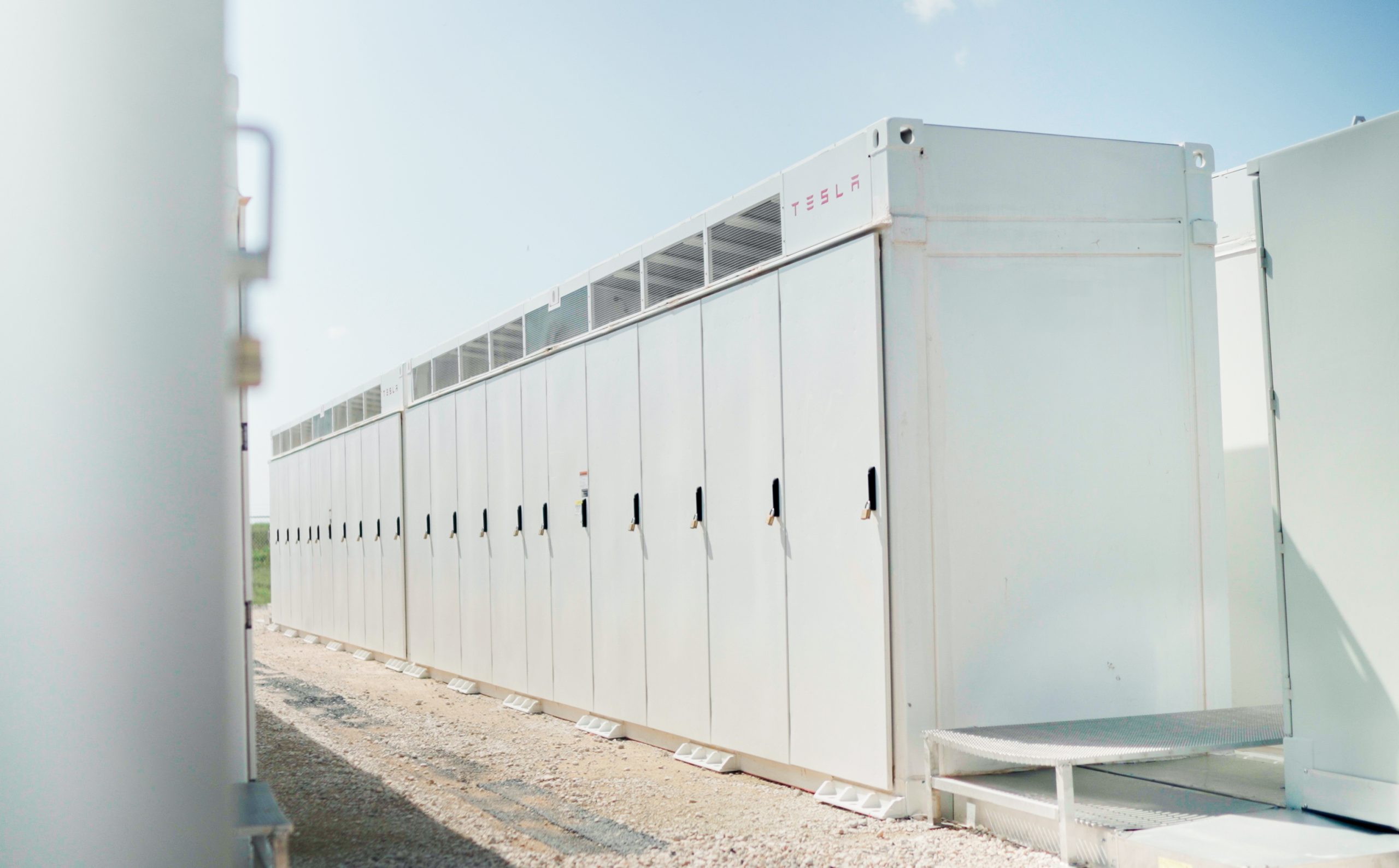
Tesla Megapack batteries will power the xAI Colossus supercomputer in Memphis to ensure power stability. The collaboration between Tesla and xAI highlights the synergy among Elon Musk’s ventures.
The artificial intelligence startup has integrated Tesla Megapacks to manage outages and demand surges, bolstering the facility’s reliability. The Greater Memphis Chamber announced that Colossus, recently connected to a new 150-megawatt electric substation, is completing its first construction phase. This transition addresses criticism from environmental justice groups over the initial use of natural gas turbines.
“The temporary natural gas turbines that were being used to power the Phase I GPUs prior to grid connection are now being demobilized and will be removed from the site over the next two months.
“About half of the operating turbines will remain operating to power Phase II GPUs of xAI until a second substation (#22) already in construction is completed and connected to the electric grid, which is planned for the Fall of 2025, at which time the remaining turbines will be relegated to a backup power role,” the Chamber stated.
xAI’s rapid development of Colossus reflects its ambition to advance AI capabilities, but the project has faced scrutiny for environmental impacts. The shift to Megapacks and grid power aims to mitigate these concerns while ensuring operational continuity.
The Megapack deployment underscores the collaboration among Musk’s companies, including Tesla, SpaceX, Neuralink, and The Boring Company. Tesla appears to be the common link between all of Musk’s companies. For example, The Boring Company built a tunnel in Giga, Texas. In addition, Musk has hinted at a potential collaboration between the Tesla Optimus Bot and Neuralink. And from January 2024 to February 2025, xAI invested $230 million in Megapacks, per a Tesla filing.
Tesla Energy reported a 156% year-over-year increase in Q1 2025, deploying 10.4 GWh of storage products, including Megapacks and Powerwalls. Tesla’s plans for a new Megapack factory in Waller County, Texas, which is expected to create 1,500 jobs in the area, further signal its commitment to scaling energy solutions.
As xAI leverages Tesla’s Megapacks to power Colossus, the integration showcases Musk’s interconnected business ecosystem. The supercomputer’s enhanced stability positions xAI to drive AI innovation, while Tesla’s energy solutions gain prominence, setting the stage for broader technological and economic impacts.
Energy
Tesla Energy celebrates one decade of sustainability
Tesla Energy has gone far since its early days, and it is now becoming a progressively bigger part of the company.

Tesla Energy recently celebrated its 10th anniversary with a dedicated video showcasing several of its milestones over the past decade.
Tesla Energy has gone far since its early days, and it is now becoming a progressively bigger part of the company.
Tesla Energy Early Days
When Elon Musk launched Tesla Energy in 2015, he noted that the business is a fundamental transformation of how the world works. To start, Tesla Energy offered the Powerwall, a 7 kWh/10 kWh home battery system, and the Powerpack, a grid-capable 100 kWh battery block that is designed for scalability. A few days after the products’ launch, Musk noted that Tesla had received 38,000 reservations for the Powerwall and 2,500 reservations for the Powerpack.
Tesla Energy’s beginnings would herald its quiet growth, with the company later announcing products like the Solar Roof tile, which is yet to be ramped, and the successor to the Powerwall, the 13.5 kWh Powerwall 2. In recent years, Tesla Energy also launched its Powerwall 3 home battery and the massive Megapack, a 3.9 MWh monster of a battery unit that has become the backbone for energy storage systems across the globe.
Key Milestones
As noted by Tesla Energy in its recent video, it has now established facilities that allow the company to manufacture 20,000 units of the Megapack every year, which should help grow the 23 GWh worth of Megapacks that have already been deployed globally.
The Powerwall remains a desirable home battery as well, with more than 850,000 units installed worldwide. These translate to 12 GWh of residential entry storage delivered to date. Just like the Megapack, Tesla is also ramping its production of the Powerwall, allowing the division to grow even more.
Tesla Energy’s Role
While Tesla Energy does not catch as much headlines as the company’s electric vehicle businesses, its contributions to the company’s bottom line have been growing. In the first quarter of 2025 alone, Tesla Energy deployed 10.4 GWh of energy storage products. Powerwall deployments also crossed 1 GWh in one quarter for the first time. As per Tesla in its Q1 2025 Update Letter, the gross margin for the Energy division has improved sequentially as well.
-

 Elon Musk3 days ago
Elon Musk3 days agoTesla investors will be shocked by Jim Cramer’s latest assessment
-

 News1 week ago
News1 week agoTesla Robotaxi’s biggest challenge seems to be this one thing
-

 News2 weeks ago
News2 weeks agoTexas lawmakers urge Tesla to delay Austin robotaxi launch to September
-

 Elon Musk2 weeks ago
Elon Musk2 weeks agoFirst Look at Tesla’s Robotaxi App: features, design, and more
-

 Elon Musk2 weeks ago
Elon Musk2 weeks agoxAI’s Grok 3 partners with Oracle Cloud for corporate AI innovation
-

 News2 weeks ago
News2 weeks agoSpaceX and Elon Musk share insights on Starship Ship 36’s RUD
-

 News2 weeks ago
News2 weeks agoWatch Tesla’s first driverless public Robotaxi rides in Texas
-

 News2 weeks ago
News2 weeks agoTesla has started rolling out initial round of Robotaxi invites

